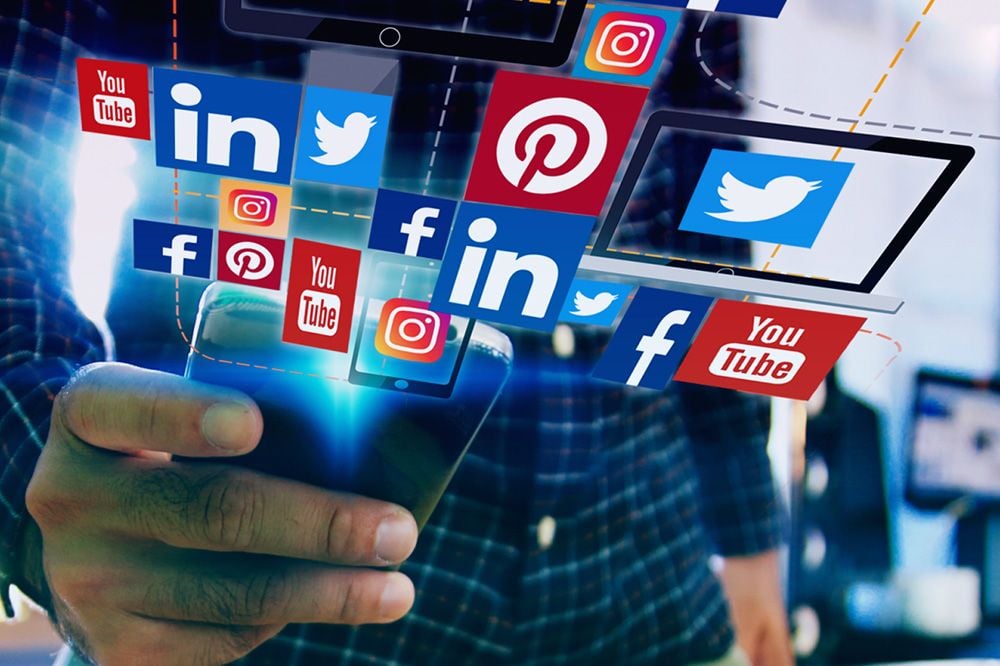Science, media and technology encourage the pursuit of knowledge and understanding of the natural and social world. U.S. leadership in new technologies—from artificial intelligence to biotechnology to computing—is critical to both our future economic competitiveness and our national security and thus our human rights. The speed at which technology is developing has never been faster, and social media is no exception.
Social Media has catapulted into a phenomenon of communication, self-education, collaboration, promotion, and self-expression. Approximately 5 billion people around the world use social media, and that number will only continue to grow. It has been a venue to share new inventions, learn history, find new jobs, do online shopping, see photos of friends, learn new skills, or even interact with your favorite celebrity. However, with any evolving entity, it is bound to be exploited and used for misconduct. In the years to come, there will be significant societal implications, both positive and negative, derived from the evolution of social media and its associated technologies.
Six Degrees was a platform that was widely considered to be the very first social networking site. Created in 1996, this platform allowed users to create a profile, send messages, and post bulletin board items. Years later, Blogs began to gain popularity with the 1999 launch of the LiveJournal. In 2002, LinkedIn was founded as a networking site for career-minded professionals. In 2003, Myspace launched and by 2006, it was the most visited website on the planet. It promoted self-expression, amateur coding and users had the ability to share new music directly on their profile pages. By 2008, Facebook took over and the invention of the smartphone liberated social media from the desktop and laptop computer. Facebook, Twitter, Snapchat, Instagram, TikTok, and other social media services thrived in the mobile app environment.
Social media and social networking are some of the biggest forms of technological communication today. As technology evolves, the divide between human social networks and the social network of devices begins to blur. With the largest age group of social media users being represented by individuals between 10 and 36 year olds, social media speaks to three generations of digital natives: Millennials, Gen Zs and Alphas. There are also demographic differences, such as by gender, that dictates where they check social media sites regularly for news. Women make up a greater portion of regular news consumers on Nextdoor (66%), Facebook (62%), Instagram (59%) and TikTok (58%), while men make up a greater share on sites like Reddit (67%), X (62%) and YouTube (58%).
Today’s technology is constantly evolving, improving our livelihoods, and expanding our everyday knowledge. However, there are bad actors who use tech for evil purposes which can and do infringe on peoples’ human rights. While the general population uses new and emerging technologies primarily for social communications, digital commerce, and informational purposes, they have also become a favored tool for terrorists such as the Islamic State in Iraq and other terrorist organizations. These actors are known to exploit social media and other forms of technologies to keep their members motivated. There is no doubt that malicious people do use and foster problematic communities on social media platforms to create and cultivate radical groups and promote harmful rhetoric. This will only get exacerbated in future years due to the ease of exchanging information and most importantly, misinformation.
Today, social media influences our social behavior, our forms of communication and expression as well as the sharing of ideas, thoughts, and information. As technology evolves, fortunately algorithms have improved its curation and have had greater oversight for any uploaded extremist or violent content. For example, detecting hate speech or terroristic values that are uploaded on these social media platforms – resulting in immediate bans or admonishment. Algorithmic recommendations are a key component of the modern Internet because, with such a vast amount of content online, algorithms are necessary to efficiently and effectively sort, filter, and recommend relevant content to users. The ongoing debate is whether allowing known terrorists to use Twitter, Facebook, etc., is sufficient to qualify as “aiding and abetting” terrorism as the term is used in the Anti-Terrorism Act.
Famously, Meta was blamed for the Rohingya crisis and was attempted to be held accountable by several activists. It was claimed that the atrocities perpetrated by the Myanmar military against the Rohingya people in 2017. Since the right to free expression is a fundamental right, government limits on speech face high bars to legitimacy.
Looking to the future, it is clear that social media will continue to play a central role in our lives. Ultimately, the future of social media in an industrial society will depend on how it is regulated and used. It is important for society to consider the potential consequences of our reliance on social media. In the future, the advancement of this type of media will be instantaneous and consist of fewer ways to validate its authenticity. It has become abundantly clear that disinformation and hate on social media can create real-world harms. – whether it’s anti-vaxx misinformation, election-related lies or hate, in years to come it will be a significant threat to human rights, civil rights and national security.
Cherisse Lewis
Graduate Student, International Affairs Policy & Analysis
American University
